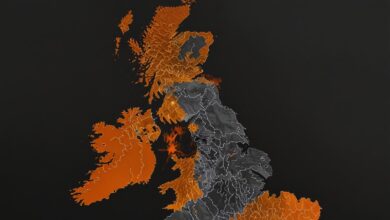Labour Party Pledges to Make Mortgage Guarantee Scheme Permanent for First-Time Homebuyers Ahead of 2024 Election

The Labour Party, gearing up for the 2024 general election, vows to secure homes for over 80,000 young people by making the mortgage guarantee scheme permanent, in a bid to address challenges faced by first-time homebuyers and counteract the high number of young individuals living with parents.
The Labour Party, leading up to the anticipated 2024 general election, has pledged to make permanent a mortgage guarantee scheme for first-time homebuyers if it wins. This scheme, originally introduced by the Conservatives under then-Chancellor Rishi Sunak in 2021, is designed to encourage lenders to offer low-deposit mortgages by having the government act as guarantor. Currently extended until July 2024 by Chancellor Jeremy Hunt, Labour asserts the permanence of this scheme will help over 80,000 young people secure homes in five years.
Labour Leader Sir Keir Starmer has framed this initiative as part of a broader effort to alleviate the challenges faced by young people in the housing market. The proposed program, called “Freedom to Buy,” aims to counteract the significant portion of the youth population living with parents, estimated at 6.7 million according to the Office for National Statistics.
Simultaneously, the Conservatives have put forward their “Family Home Tax Guarantee,” which promises no increases in council tax bands or stamp duty.
In related political developments, UK Prime Minister Rishi Sunak drew criticism for leaving a D-Day ceremony early to conduct a television interview. The Office for Statistics Regulation also criticized him for claims made during a debate that Labour’s policies would result in a £2,000 tax increase per household, noting the misleading nature of the presented figures.
The political landscape has been further complicated by the rise of the Reform Party under Nigel Farage, which polling indicates is drawing significant support from traditional Conservative voters, potentially altering the electoral dynamics.








